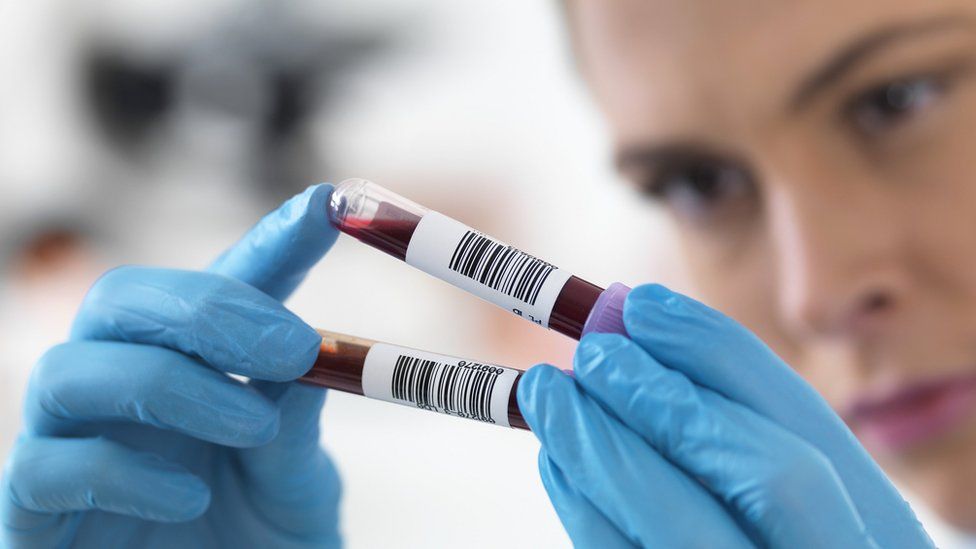ARTICLE AD BOX
 Image source, Getty Images
Image source, Getty Images
By Michelle Roberts
Digital health editor
Similar to doing an MOT on a car, scientists believe they can run a blood test to check how fast a person's internal organs are ageing, and even predict which ones might soon fail.
The Stanford University team say they can monitor 11 major body parts, including the heart, brain and lungs.
They tried it on thousands of adults, mostly middle-aged or older.
One in five reasonably healthy adults aged 50-plus might have at least one fast-ageing organ, the results suggest.
And one to two in every 100 might have several organs that test older than their birthday years.
While the idea of the check-up might be scary, it could be an opportunity to intervene and change course, the researchers say.
Image source, Getty Images
Knowing which organs are in rapid decline could help reveal what health issues may be looming, the researchers say in the journal Nature.
Organ age gap
For example, an "old-for-its-time" heart increases the risk of heart failure, while a rapidly ageing brain might be more prone to dementia.
In the study, having one or more organs ageing fast was linked with a higher risk of certain diseases and death over the next 15 years.
The body parts they checked include:
- Brain
- Heart
- Liver
- Lung
- Intestine
- Kidney
- Fat
- Blood vessels (arteries)
- Immune tissue
- Muscle
- Pancreas
The blood test looks for levels of thousands of proteins to give clues on which organs are ageing at different rates.
The pattern of proteins detected appeared to be specific to particular organs.
Researchers trained a machine-learning algorithm to make the predictions using lots of blood test results and patient data.
One of the investigators, Dr Tony Wyss-Coray, explained: "When we compared each of these organs' biological age for each individual with its counterparts among a large group of people without obvious severe diseases, we found that 18.4% of those aged 50 or older had at least one organ aging significantly more rapidly than the average.
"And we found that these individuals are at heightened risk for disease in that particular organ in the next 15 years."
The university has now submitted the paperwork to patent the test, in case it can be used and sold in the future.
More studies are needed to check how good it really is at predicting organ age and health before that though.
Some of Dr Wyss-Coray's earlier work suggests the biological ageing process is not steady but comes in bursts, with some rapid accelerations in people's mid-30s, early-60s and late-70s.
Prof James Timmons, an expert in age-related health and diseases at Queen Mary University of London, has also been studying blood markers of biological age. His work focuses on detectable gene changes, rather than proteins.
He said the latest findings by Dr Wyss-Coray were impressive, but needed validating in more people, particularly younger ones from diverse ethnic backgrounds.
"Is this ageing or a new way to detect early age-related disease biomarkers? The authors favour the former, I don't think the latter is ruled out," he said.
Dr Wyss-Coray said: "If we can reproduce this finding in 50,000 or 100,000 individuals it will mean that by monitoring the health of individual organs in apparently healthy people, we might be able to find organs that are undergoing accelerated ageing in people's bodies, and we might be able to treat people before they get sick."
Prof Paul Sheils, an expert in the biology of ageing at Glasgow University, said it was still important to look at the whole body, not just individual organs, to build the most accurate picture of a person's health.
Caroline Abrahams from the charity Age UK said it while it was great that science was exploring earlier detection of serious age-related diseases, consideration was needed about how people might feel living with the knowledge.
Should it become a reality, she said people would want emotional and clinical support alongside the test results and that the NHS would need to be ready for that - and have the funding to provide it.
Related Internet Links
The BBC is not responsible for the content of external sites.

 1 year ago
39
1 year ago
39








 English (US) ·
English (US) ·